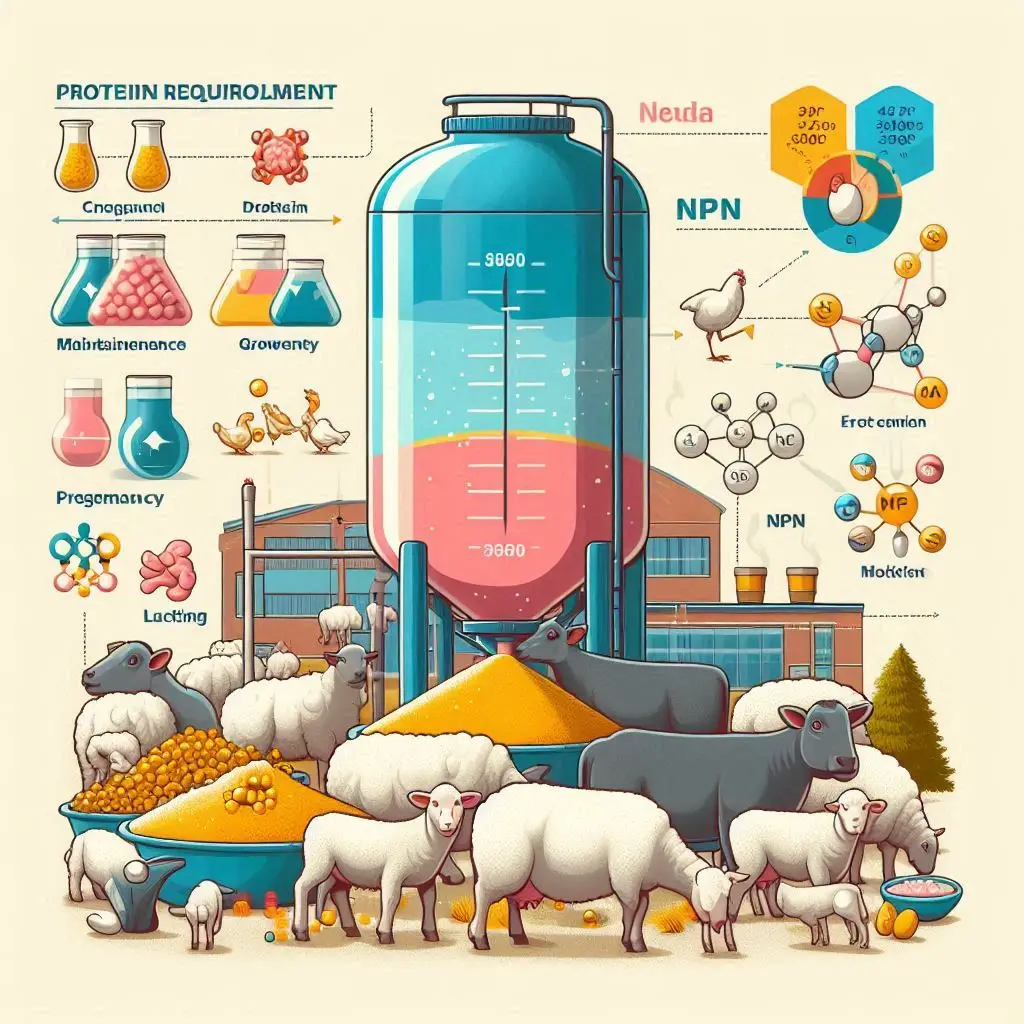Special features of poultry nutrition

Introduction to Poultry Nutrition
Poultry nutrition encompasses the dietary needs of birds raised for meat, eggs, or other products. Proper nutrition is crucial for maximizing growth rates, reproductive performance, and overall health. It is estimated that feed costs account for 70-75% of total production expenses in poultry farming, making effective nutrition a key factor in profitability.
Importance of Nutrition
Nutrition affects various aspects of poultry production, including:
- Growth Performance: Adequate nutrition ensures optimal growth rates in broilers and layers.
- Health Status: A balanced diet supports the immune system, reducing the incidence of diseases.
- Reproductive Efficiency: Proper nutrition is essential for egg production and fertility in breeding birds.
- Feed Efficiency: The ability of birds to convert feed into body weight or eggs is directly linked to nutritional quality.
Essential Nutrients for Poultry
Poultry require a balanced diet comprising six essential nutrients:
1. Water
Water is the most critical nutrient for poultry. It is involved in various physiological processes, including digestion, nutrient transport, and temperature regulation. Birds should have constant access to clean and fresh water.
2. Carbohydrates
Carbohydrates serve as the primary energy source for poultry. They are mainly derived from cereal grains such as corn, wheat, and barley. Carbohydrates are essential for maintaining energy levels necessary for growth and reproduction.
3. Proteins and Amino Acids
Proteins are crucial for tissue development and repair. Poultry require specific amino acids, which are the building blocks of proteins. Essential amino acids, such as lysine, methionine, and threonine, must be supplied through the diet, as birds cannot synthesize them in sufficient quantities.
4. Fats
Fats are a concentrated source of energy and play a role in the absorption of fat-soluble vitamins. They are often included in poultry diets to enhance energy density, especially in broiler feeds. Common sources of fats include vegetable oils and animal fats.
5. Minerals
Minerals are vital for various physiological functions, including bone formation, muscle function, and enzyme activity. Key minerals for poultry include calcium, phosphorus, sodium, and trace minerals like zinc and iron. Calcium is particularly important for laying hens, as it is required for eggshell formation.
6. Vitamins
Vitamins are organic compounds required in small amounts for normal metabolic functions. Deficiencies can lead to health issues and reduced productivity. Important vitamins for poultry include:
- Vitamin A: Essential for vision and immune function.
- Vitamin D: Important for calcium metabolism and bone health.
- B Vitamins: Crucial for energy metabolism and overall health.
Nutritional Requirements by Age and Species
Nutritional requirements vary depending on the age and species of poultry. For instance, broilers have higher protein requirements during the early stages of growth, while layers require more calcium and phosphorus as they approach peak egg production.
Broilers
Broiler chickens require high-energy diets rich in protein to support rapid growth. The diet should contain approximately 20-24% protein in the starter phase, gradually decreasing to about 18-20% in the finisher phase.
Layers
Laying hens have specific nutritional needs to support egg production. Their diets should be formulated to contain around 16-18% protein, with increased calcium levels (around 3.5-4.5%) to ensure strong eggshells.
Breeders
Breeder flocks require a balanced diet that supports both growth and reproductive performance. The protein content should be around 16-18%, with a focus on amino acids that enhance fertility and hatchability.
Feed Formulation and Ingredients
Formulating a balanced poultry diet involves selecting appropriate feed ingredients to meet the nutritional requirements of birds. Common ingredients include:
- Cereal Grains: Provide energy but are often low in protein.
- Protein Meals: Such as soybean meal and canola meal, are essential for meeting protein and amino acid needs.
- Fats and Oils: Enhance energy density and improve feed efficiency.
- Vitamins and Minerals: Supplements ensure that birds receive adequate micronutrients.
Alternative Feed Ingredients
With rising feed costs and competition for traditional feed sources, there is a growing interest in alternative feed ingredients. Options include:
- Insect Meals: High in protein and essential fatty acids, insect meals are gaining popularity as sustainable feed sources.
- Food Waste: Utilizing by-products from the food industry can reduce waste and lower feed costs.
- Agro-Industrial Byproducts: Ingredients like distillers dried grains and oilseed meals can be incorporated into poultry diets.
Challenges in Poultry Nutrition
Despite advancements in poultry nutrition, several challenges persist:
Nutrient Absorption Issues
Certain feed ingredients can inhibit nutrient absorption. For example, raw soybeans contain anti-nutritional factors that can reduce protein digestibility. Proper processing of feed ingredients is essential to mitigate these issues.
Mycotoxin Contamination
Mycotoxins are toxic compounds produced by molds that can contaminate feed. They pose significant risks to poultry health and productivity. Implementing mycotoxin management strategies is crucial for ensuring feed safety.
Balancing Cost and Quality
Formulating cost-effective diets while maintaining nutritional quality is a continuous challenge for poultry producers. The use of least-cost formulations must consider the availability and price fluctuations of feed ingredients.
Recent Advances in Poultry Nutrition
The field of poultry nutrition is constantly evolving, with ongoing research aimed at improving feed efficiency and bird health. Some recent advancements include:
Precision Nutrition
Precision nutrition involves tailoring diets to meet the specific needs of individual birds or flocks. This approach utilizes data analytics and monitoring technologies to optimize feed formulations based on growth rates and health indicators.
Feed Additives
The use of feed additives, such as probiotics, prebiotics, and enzymes, is becoming more prevalent. These additives can enhance gut health, improve nutrient absorption, and boost overall performance.
Sustainable Practices
Sustainability is a significant focus in poultry nutrition. Efforts to reduce the environmental impact of poultry production include using alternative feed sources, improving feed conversion ratios, and minimizing waste.
Conclusion
Poultry nutrition is a complex and dynamic field that plays a crucial role in the success of poultry production. Understanding the specific nutritional requirements of different poultry species, formulating balanced diets, and addressing challenges in feed formulation are essential for achieving optimal health and productivity. As the industry continues to evolve, ongoing research and innovation will be key to meeting the demands of a growing global population while ensuring sustainable practices in poultry farming.
For more pearls of Vets Wisdom:






Responses